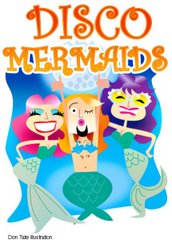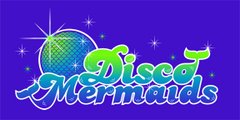The “L” word and the “C” word are tossed around all the time in this business. A conference attendee recently asked an editor to define “Literary” and the editor replied, “It means (long pause…long pause…long pause), like, NOT the DaVinci Code.” I looked at my friends on either side of me. They shrugged. I shrugged.
I realized at that moment that I could not accurately (GASP!) define the two for myself. Really. No joke. How could I get this far and not know (or be able to articulate) the difference between Literary and Commercial? I mean, I get that Gossip Girl is Commercial and I get that Johnny Tremain is Literary, but what exactly does that mean?
These are some of the answers I received from author friends of mine:
“Literary books are for smart kids and Commercial books are for fun kids.”
“Literary books win awards, but Commercial books sell more.”
“Commercial means it has a big hook, Literary means it's slow and boring.”
“Literary books are pieces of art. Commercial books are trendy and fleeting.”
M'kay. (Remember, I didn't create these definitions…I'm just quoting them.) The exercise was not entirely helpful because, of course, I can argue that smart kids enjoy both L-books and C-books. Printz winners “American Born Chinese” and “Monster” both seemed pretty hook-y and Commercial-y to me, but still won the coveted award. And I consider “Because of Winn Dixie” to be Literary, but it certainly is not slow or boring (to me).
I looked up “Literary” in the dictionary. It means: Having to do with the written word. 'Kay, that just doesn't help me a bit. So I looked up “Literature.” It means: Written works (I get that part) that are recognized as having important or permanent artistic value. Ohhhhh…now I…wait. What? “Artistic value”…riiight.
Problem: Art is subjective. Which is why our small town still celebrates a massive structure built entirely of slimy used gum as a “must see” highlight on our Chamber of Commerce map…but that's a whole 'nother story. So, what really makes one book Literary and another Commercial? Is one better than the other? And can one book be both? I think about this constantly as I'm revising my book. And I wonder if adding all the figurative layers is dragging it down and taking away from its potential commerciality, or adding to its artistic value. I guess it all comes down to telling a good story. Which is what I've decided to do, no matter what category it gets thrown into.
I know Catcher in the Rye is considered completely Literary, but did people label it as Commercial when it was published back in 1945? Maybe it was the Gossip Girl of its time and everyone was all like, “Oh, that's sooo light and silly and trendy…” And now it's a major classic and J.D. Salinger is sitting there like, “Hmm…who knew?”
Eve
Monday, April 30, 2007
Subscribe to:
Post Comments (Atom)







13 comments:
Okay, I know, I should be giving some erudite comment about literary versus commercial--but all I can think of is that too many teachers seem to elevate literary and downgrade commercial or light. And, in their minds, literary seems to mean an award or an "issue." So, which, at this point is Inkspell? The Sammy Keyes mysteries are brilliantly written--with an incredible voice. What teacher would label them literary?
Probably labels are the whole problem, as usual! :)
On the other note--GUM ALLEY was the highlight of my son's trip to SLO last Thanksgiving. How many times to you actually GET to contribute your own bit to a piece of ongoing art?
Why is there no category called, Dang Good Books?
After all, many of these "conflicting" novels sit right beside each other on the shelf. Sure there are sections labeled Sci-Fi, Romace, Mystery, and so forth, but the largest section of all in most bookstores is simply titled Fiction or Novels or some other vague term. Seems to me that with every label you apply, there is a risk of alienating a potential reader.
I recognize agents need to have a description to sell to editors, and editors to the marketing people, and so forth up the line, but still I wonder if calling something literary doesn't scare off readers who just want a fun relaxing read, and if some of the so-called smart poeple don't turn their nose away from a book they might otherwise enjoy simply because somebody called it Commercial.
this is a great topic, eve. my goal in writing is to go for the cross-over and aim for a novel that is both literary and commercial. i think john green pulls that off big time. there's no question he's a good writer, there's no question his books are popular. so does sarah dessen. she's always ala recommended as well as a best seller. literary books often have 'big topics' while commericial books are often fluffy (ala babysitter club, sweet valley high, goosebumps series). perhaps in movie terms the difference is easier to define:
literary movie: little children (also a book)
commerical movie: terminator 2
a cross-over movie: the illusionist
Literary in kidlit often seems to translate into "not for children". These are often books with kids IN them, but to get kids to READ them, you have to strap them to a chair. My son read American Born Chinese twice yesterday, so it's not just about the awards.
An editor who works with literary YA's described it to me this way.
Commercial means it has a hook like a movie. You know, the one sentence line that sums it all up and we all go, "OOOOh, I have to see that." And it can be more plot driven, although it isn't always. It tends to sell better than literary and is considered more "fluffy". It's like Twinkies.
Literary tends to use more images and symbols, has deeper character and story development (and can be a character study), is less plot driven, and is harder to sell. It's more like filet mignon.
I don't know if you read his blog and already saw this, but agent Nathan Bransford had a great post about this. Here:
http://nathanbransford.blogspot.com/2007/02/what-makes-literary-fiction-literary.html
Aaaa! why did it cut it off? how do you post links on blogger?
Okay, I've commented on your fabulous blog something like twice in the past and here I am clogging up this whole thread. But if you Google "What makes literary fiction literary" it will take you to his post.
WOW! Thanks for the wonderful comments, guys. Thanks for nailing it down, Judy. And, Dot, I am checking out that blog right now!
I agree with you guys that there are books out there that contain both the literary and commercial elements. Some that come to mind (that adults, children, librarians, teachers, reviewers all seem to like) are "Holes", "Twilight" and "Octavian Nothing."
It's my ultimate goal to create this type of book that straddles both, that doesn't feel like a 'literary' piece of work on first reading, but can be read on multiple levels. HA! Easier said than done. But now that I better understand the difference between the two, I can work on combining all the elements.
And, Becky, I love Bubblegum Alley! It's a constant source of debate out here as to whether or not it's ART. It certainly is creative and people enjoy looking at it...and that's my definition of art. I was just using it as an example of how art is always subjective. Funny that it was the highlight of your son's trip. I loved visiting it as a kid. Still do!
Eve
Eve, your post reminded me of a PW's Children's Bookshelf review I read recently of Melissa Marr's upcoming novel WICKED LOVELY. The reviewer said the writing was so gorgeous that she wanted to stop and bask in the beautiful language, yet the story was so compelling that she ended up racing through it to find out how it ended. She then went back and read it at a more leisurely pace, just so she could soak up the writing.
Wow. I agree with you that it would be great to create something that straddles both categories.
Which means I'd better get off the internet and get crackin'.
:-) Natalie
Eve--I love it, too, but I probably missed the whole art debate, because I only lived around it when I was a kid. At that point, I think our responses were pretty much limited to "Cool!" or "Gross!" (Or both!)
Now, I'd have to say...sure. Definitely art!
Eve, this is definitely an issue I've had to think about because I've received feedback from some writers that my YA historical manuscript is "literary" while others say it's "commercial." It's confusing. My novel does has symbols and poetic language, but it also has a strong plot. In the end, I'm just writing (and constantly rewriting) the best story I can. I like your idea of taking the best of both!
Literary vs. Commercial:
Wow.
This is a topic that has been spinning my head for a long time. About five years ago, I decided I wanted to write deep, resonant, graceful, books AND keep my house. But almost every literary writer I know, until the Newbery is won--which might never happen--has a day job or some other means of support.
And even winning the Big Prizes is no guarantee that the books will sell well after the initial spurt. Commercial writers wait for the day something "hits" which is unlikely and is impossible to predict.
The vast majority of both literary and commercial writers watch their books drop out of print if the B&N "numbers" aren't there. Ruta Drummond (the national Borders buyer) said she gets 300-400 picture books *a month* to consider stocking. Novels can't be far behind. The shelf-space competition for ALL kinds of work in incredible.
Can a literary writer try something commercial without people thinking less of him/her? I have the opposite problem. Can a person who has created and written series books be taken seriously by literary reviewers?
After a few years of floundering, I have found my own Art/Commerce balance/solution, and I came across dozens of others in the process. I will share them all in a breakout session on the Uneasy Marriage of Art and Commerce in LA at SCBWI. There are SO many good sessions on the schedule this year. As always, I am looking forward to the annual chance for us all to hobnob with our fellow wizards.
And dance.
And see what Jay, Eve,and Robin are wearing.
Post a Comment